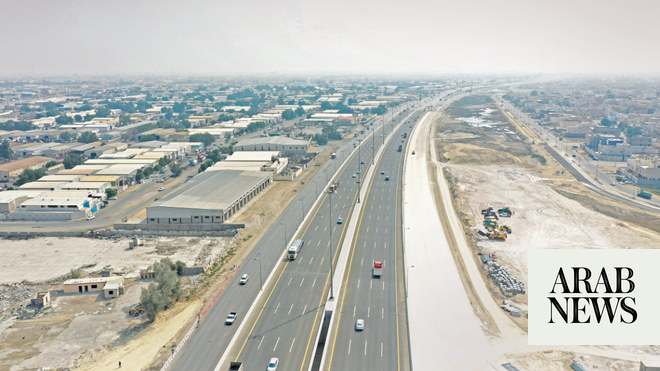RIYADH, Saudi Arabia – Transformations in Logistics Sector Highlight Saudi Arabia’s Strategic Vision
Saudi Arabia’s logistics sector has witnessed significant transformation in recent years, driven by initiatives such as Vision 2030 and the National Industrial Strategy. As this sector continues to mature, the Kingdom is exploring groundbreaking strategies to propel it forward.
Major Opportunities for Global Players
Saudi Arabia, with its population of approximately 36 million and a GDP of $1.81 trillion in purchasing power parity as of 2023, stands as a central hub for expansive trade routes. The country’s world-class infrastructure presents considerable opportunities for global logistics players.
The successful bids for Expo 2030 and the 2034 FIFA World Cup are key growth catalysts, inviting global business opportunities and opening new trade and commerce channels.
Industry experts believe that these developments will attract more international players to the sector. Hakan Lanfredi, Executive Board Member at Dussmann Group, told Arab News, “For international logistics firms, these developments present lucrative opportunities to establish or expand operations, leveraging major global events and the rising need for advanced supply chain solutions.”
Dominik Baumeister, PwC Middle East Head and Global Partner of Transport and Logistics, echoed this sentiment, pointing to untapped opportunities within Saudi Arabia’s logistics industry that could attract global companies. “There are several whitespaces in Saudi Arabia’s logistics landscape that offer interesting opportunities for global players,” Baumeister said. He emphasized the early stages of development in logistics services, particularly in Freight Forwarding, 3PL, and warehousing.
Baumeister also mentioned ongoing efforts in airport and port privatization and the opening of roads as part of public-private partnerships.
Emerging Logistics Hotspots
The Kingdom is developing multiple logistics hubs supported by essential government programs and a favorable business environment.
“Besides NEOM and the Riyadh Logistics Park, the Eastern Province has emerged as a key logistics hub due to its proximity to major oil operations and King Abdulaziz Port,” said Saud Al-Sulaiman, CEO of Alsulaiman Group. He noted the advanced logistical infrastructures and strategic positions of these hotspots facilitate both regional and international trade.
One notable logistic hotspot is the Integrated Logistics Bonded Zone (ILBZ) in Riyadh. “The ILBZ offers direct access to a vast market of 5 billion people across Europe, Asia, and Africa within an eight-hour flight range,” Lanfredi highlighted, mentioning its attractive incentives like a 50-year tax holiday and 100 percent foreign ownership.
Technological Innovation
Saudi Arabia’s focus on technological advancements aims to enhance efficiency and competitiveness in the logistics sector. Baumeister noted significant strides in Saudi customs capabilities and integration into various data flows, supported by port operators, shipping lines, and airlines.
He also highlighted the emergence of homegrown innovations in e-commerce and parcel space, including geospatial solutions coupled with AI.
“These technological advances will support the Kingdom’s Vision 2030 journey, providing more optimized operations and predictive analytics for future projects,” Baumeister said.
Navigating Uncertainties
Despite the sector’s growth, there are challenges to overcome. Lanfredi identified three main hurdles: navigating complex customs and regulatory frameworks, managing extreme temperatures, and facing a shortage of skilled labor in emerging fields like automation and robotics.
He emphasized the need for streamlined customs clearance services and specialized capabilities in cold-chain logistics, along with advanced technology for live temperature control.
Toward Sustainability
Saudi Arabia is steering towards green logistics, as outlined in the Saudi Green Initiative and Vision 2030. Lanfredi stressed the importance of electrifying transportation fleets, integrating renewable energy sources into logistics operations, and adopting sustainable supply chain practices. The use of solar energy in warehouses and the digital transformation of payment systems are also reshaping the logistics landscape.
Arab News contributed to this report.
